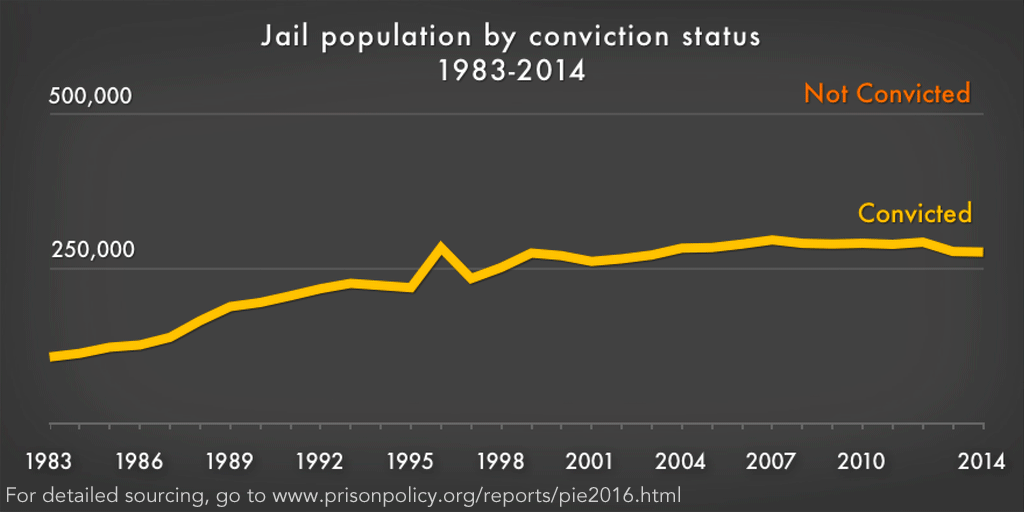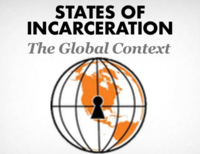Court hears industry lawsuit against FCC regulation of prison and jail telephone industry
We explain what's next and what the families can expect on telephone justice.
by Peter Wagner, February 8, 2017
On Monday, arguments were heard in a federal court case challenging the Federal Communications Commission’s regulations of the prison and jail telephone industry. A decision is not expected for several months, but there are a few updates to share nevertheless.
Centurylink, Global Tel*Link, Pay Tel, Securus Technologies, and Telmate sued the FCC when it started regulating the industry. Shortly thereafter, the Prison Policy Initiative joined with the D.C. Prisoners’ Legal Services Project, Citizens United for Rehabilitation of Errants (CURE), The Campaign for Prison Phone Justice, and the Office of Communication, Inc. of the United Church of Christ as intervenors in support of the government respondents in the case, and we were all represented by the Institute for Public Representation at the Georgetown University Law Center. By joining the case, we could help the FCC defend its orders, and ensure that the unique interests of the families and other stakeholders were represented in the case. The recent presidential election made our 2013 decision to intervene especially important.
The presidential election reshuffled the seats at the FCC. Ajit Pai, a commissioner since 2012 was made Chairman, and even though Pai had previously condemned the market failure caused by the corrupt commission system, he ultimately voted against the FCC’s regulations of the industry. And on January 31, the FCC told the Court that it was not going to defend two aspects of the regulations. Even as the FCC refused to support its own regulations, our attorney, Andrew Schwartzman, was able to defend the FCC’s work before the Court. We’re glad we intervened.
We don’t know what the Court is going to decide, and we don’t yet know how or whether Chairman Pai wants the FCC to address what he saw as “market failure” in the prison and jail telephone market.
All of this will become clearer over the next few months, but that leaves us with the immediate question of what families with loved ones behind bars can expect to pay. That too is complicated, in part because the Court stayed part of the FCC’s regulations.
Some states like Alabama have stricter regulations, and some prisons and jails have negotiated better deals for the families, but under the currently-enforceable federal rules:
- For both prisons and jails, inter-state calls will continue to be capped at a maximum of $0.21-$0.25/minute for debit/prepaid or collect, respectively. (These are the rate caps that went into effect in February 2014. For now, in-state calls are not subject to rate caps.)
In addition, the abusive hidden fees for both inter-state and in-state calls, which our report Please Deposit All of Your Money: Kickbacks, Rates, and Hidden Fees in the Jail Phone Industry found can easily double the price of a call, are now capped at:
- Payment by phone or website: $3 (previously up to $10)
- Payment via live operator: $5.95 (previously up to $10)
- Paper bills: $2 (previously up to $3.49)
- Markups and hidden fees embedded within Western Union and MoneyGram payments: $0 (previously up to $6.95)
- Markups and hidden profits on mandatory taxes and regulatory fees: $0 (We’ve seen these markups and hidden profits on “mandatory” taxes be 25% of the cost of the call)
- All other ancillary fees: $0. (There are many of these charges. Some of the most egregious ones are $10 fees for refunds, $2.50/month for “network infrastructure” and a 4% charge for “validation”.)
Later, if we are successful in Court and nothing else happens:
- In-state calls will be capped at $0.21-$0.25/minute, just like interstate calls. (This is particularly important because 92% of calls from prisons and jails are in-state, and because in the absence of regulation, jails are increasing the cost of these calls to up to an exploitative $1.50 a minute.
- The companies will be prohibited from defying the FCC’s rate caps by steering families to abusive “single call” products like Text2Connect™ and PayNow™ that charge $9.99-$14.99 for a single call.
Stay tuned.




